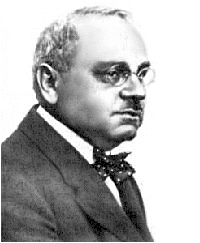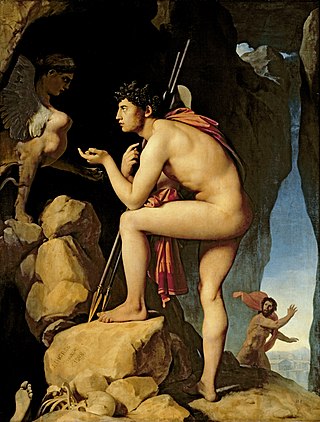
Naguib Mahfouz Abdelaziz Ibrahim Ahmed Al-Basha was an Egyptian writer who won the 1988 Nobel Prize in Literature. Mahfouz is regarded as one of the first contemporary writers in Arabic literature, along with Taha Hussein, to explore themes of existentialism. He is the only Egyptian to win the Nobel Prize in Literature. He published 35 novels, over 350 short stories, 26 screenplays, hundreds of op-ed columns for Egyptian newspapers, and seven plays over a 70-year career, from the 1930s until 2004. All of his novels take place in Egypt, and always mentions the lane, which equals the world. His most famous works include The Cairo Trilogy and Children of Gebelawi. Many of Mahfouz's works have been made into Egyptian and foreign films; no Arab writer exceeds Mahfouz in number of works that have been adapted for cinema and television. While Mahfouz's literature is classified as realist literature, existential themes appear in it.
Psychology is the study of mind and behavior in humans and non-humans. Psychology includes the study of conscious and unconscious phenomena, including feelings and thoughts. It is an academic discipline of immense scope, crossing the boundaries between the natural and social sciences. Psychologists seek an understanding of the emergent properties of brains, linking the discipline to neuroscience. As social scientists, psychologists aim to understand the behavior of individuals and groups.

Alfred Adler was an Austrian medical doctor, psychotherapist, and founder of the school of individual psychology. His emphasis on the importance of feelings of belonging, family constellation and birth order set him apart from Freud and others in their common circle. He proposed that contributing to others was how the individual feels a sense of worth and belonging in the family and society. His earlier work focused on inferiority, coining the term inferiority complex, an isolating element which he argued plays a key role in personality development. Alfred Adler considered a human being as an individual whole, and therefore he called his school psychology "Individual Psychology".
Theoretical psychology is concerned with theoretical and philosophical aspects of psychology. It is an interdisciplinary field with a wide scope of study.

Edwin Garrigues (Garry) Boring was an American experimental psychologist, Professor of Psychology at Clark University and at Harvard University, who later became one of the first historians of psychology. A Review of General Psychology survey, published in 2002, ranked Boring as the 93rd most cited psychologist of the 20th century, tied with John Dewey, Amos Tversky, and Wilhelm Wundt.
Media psychology is the branch and specialty field in psychology that focuses on the interaction of human behavior with media and technology. Media psychology is not limited to mass media or media content; it includes all forms of mediated communication and media technology-related behaviors, such as the use, design, impact, and sharing behaviors. This branch is a relatively new field of study because of advancement in technology. It uses various methods of critical analysis and investigation to develop a working model of a user's perception of media experience. These methods are used for society as a whole and on an individual basis. Media psychologists are able to perform activities that include consulting, design, and production in various media like television, video games, films, and news broadcasting. Media psychologists are not considered to be those who are featured in media, rather than those who research, work or contribute to the field.
Rehab Bassam, is an Egyptian blogger who rose to fame in 2008 when Dar al Shorouk, one of the most prominent Egyptian publishing houses, published a collection of her blog posts in book form. She is an active blogger since November 2004.
The Institute for International and Cross-Cultural Psychology (IICCP) at St. Francis College, New York City was founded in 1998. During its 21 years of existence it has become known for the advancement of cross-cultural psychology and international psychology. Supported by an International Advisory Board of psychologists from six countries, members of the institute have engaged in a series of research projects, edited books on a broad variety of topics in international psychology, sponsored numerous conferences, symposia and colloquia, given lectures at many conferences and institutions around the world, and introduced innovative curriculum development.

In classical psychoanalytic theory, the Oedipus complex refers to a son's sexual attitude towards his mother and concomitant hostility toward his father, first formed during the phallic stage of psychosexual development. A daughter's attitude of desire for her father and hostility toward her mother is referred to as the feminine Oedipus complex. The general concept was considered by Sigmund Freud in The Interpretation of Dreams (1899), although the term itself was introduced in his paper A Special Type of Choice of Object made by Men (1910).

Gardner Murphy was an American psychologist who specialized in social and personality psychology and parapsychology. His career highlights include serving as president of the American Psychological Association and the British Society for Psychical Research.

Bahgat Muhammad Osman (1931–2001) was an Egyptian cartoonist and illustrator, most widely known as for his political cartoons and children's book illustrations throughout most of the Arab world.

Tammam Hassan (1918-2011) was an academic in the field of Arabic linguistics.

Helmy Bahgat Badawi was an international arbitrator and a civil law authority who also served as the Minister of Commerce and Industry in Egypt and later as the chairman of the Suez Canal Authority, both in the 1950s.
Dar Shorouq is an Arabic publishing house based in Beirut and Cairo. It publishes books in politics, biographies, memoirs, history, philosophy, social sciences, religion, nationalist thought, and art as well as children's books.
Mahmud Awad was an Egyptian journalist and writer, born in the city of Talkha in Dakahlia Governorate.
Shaban Yusuf is an Egyptian writer, poet, critic and researcher. He is the founder of Olive Literary Workshop forum and Kitabat magazine. He published seven poetry collections, a play, critical books and research papers. He was the editor-in-chief of Kitabat Jadidah series, and the supervisor of Manarat al-Nadim literary magazine. He also wrote for a number of newspapers, including El Tahrir and Akhbar Al-Adab newspapers. Yusuf is known for his pursuit to bring marginalized poets and female authors to light. Additionally, he contributed in the field of media production by helping prepare and present television programs, such as Assir Al-Kotob,Soor Elazbakeya and Al-Maqha Al-Thaqafi. Yusuf is currently working as the editor-in-chief for Alam Al-Kotob magazine, and on publishing a new book, titled "Mustafa Mahmoud's Broken Secularism."
Shaker Abdel Hamid Suleiman was the Egyptian Minister of Culture from 2011 to 2017. He served as Secretary General of the Supreme Council of Culture, then Minister of Culture at the Ministry of Kamal al-Ganzuri in December 2011. He was also a Professor of Creative Psychology at The Egyptian Academy of Arts.
Mahmoud Al-Wardani is an Egyptian writer, novelist, storyteller and journalist. He participated in the October War in 1973, co-founded the newspaper Akhbar Al-Adab. Some of his short stories where translated to French and English.
Abdul Lateef Al Warari is a Moroccan poet and literary critic.
Ahmed Shafiq Bahgat was an Egyptian writer and journalist, born in Cairo on the 15th of November 1932 and died on the 11th of December 2011. He had a bachelor's degree in law from Cairo University.







